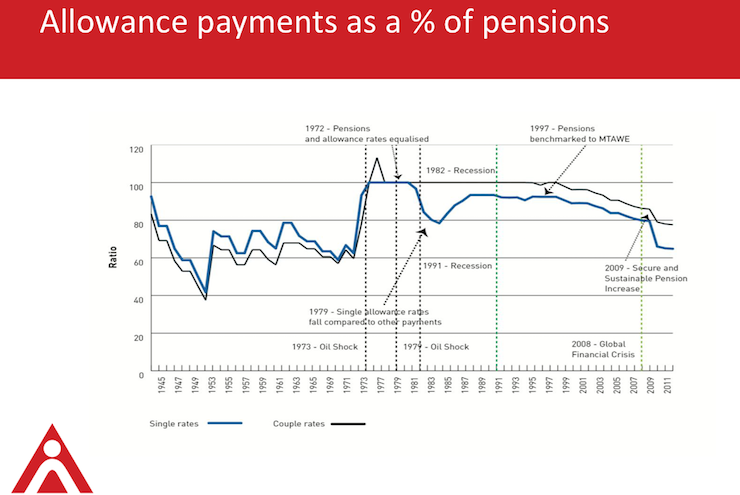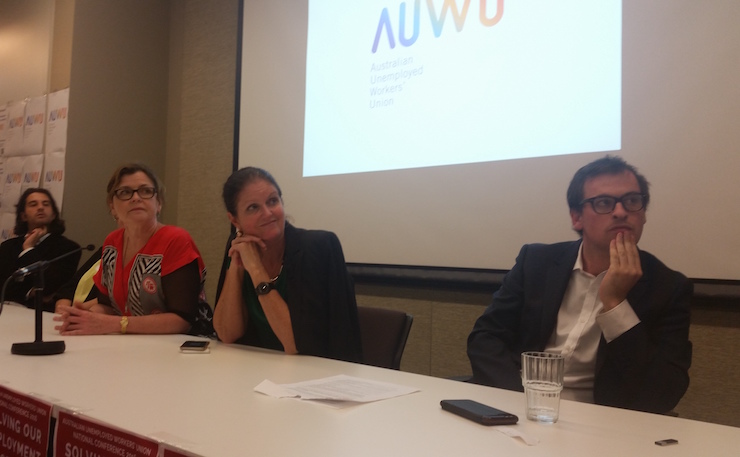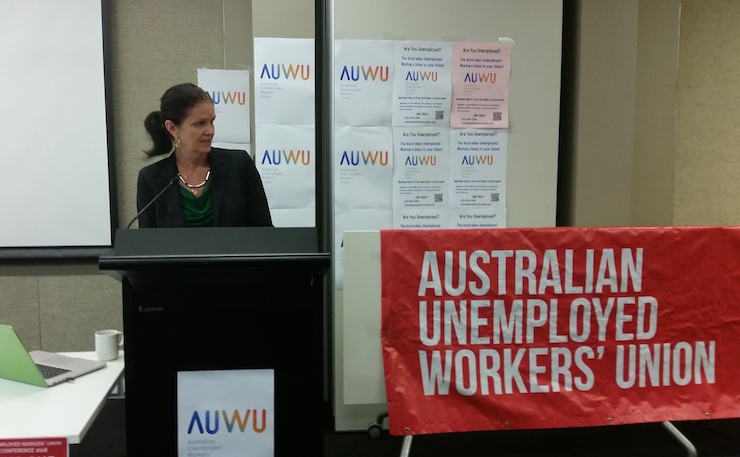A Melbourne conference has been told that fixing the payment should be a major priority for any party interested in ‘fairness and equality’, while also hearing of the hardships faced by workers struggling to find a job. Max Chalmers reports.
Malcolm Turnbull may believe there has never been a better time to be an Australian, but advocates for those struggling to find work are urging the Prime Minister to take action and increase the Newstart payment, a key component of Australia’s social security net.
Speaking at a conference organised by the Australian Unemployed Workers’ Union one of the country’s most senior voices on welfare and social services said addressing the widely-acknowledged inadequacy of the payment was the most crucial immediate measure that any government committed to “fairness and equality” needed to address.
Cassandra Goldie, CEO of the Australian Council of Social Services, said the problem had been at the top of the list of issues raised in a recent meeting with the Prime Minister.
While cautious not to be drawn on the detail of her meeting with Turnbull, Goldie said the PM had questioned how an increase to the payment, relied upon by around 750,000 Australians, would be funded.
“The conversation was about ‘where does the money come from’,” Goldie said. “This is the discussion that will be had through the debate about the Federal budget, throughout the election period.”
ACOSS has long argued the payment is inadequate and has found surprising allies, including the Business Council of Australia, in prosecuting its case. A 2014 report found over half of those living on Newstart fell below the poverty line, while a 2015 report found that on a given day there were just 10 properties listed in the entire country that would be classified as ‘affordable’ for a person reliant on Newstart. Only one of those properties was in a capital city.
Newstart is currently indexed on the Consumer Price Index (CPI), causing it to grow at a lower rate than the pension, which is tied to wages.

Goldie said this meant the payment, which comes to a maximum of just $527.60 per fortnight for singles without children, had not seen a real increase since the Keating years.
Neither major party is committed to increasing Newstart, and efforts by the Greens in 2013 to increase the payment by $50 per week failed to find sufficient parliamentary support. Greens Senator Rachel Siewert said a similar bill put forward by her party in the current parliament would have made an immediate impact for thousands of people living on the payment.
“Punishing people by condemning them to poverty is not contributing to the caring society that the majority of Australians want for themselves or for their children,” she said.
Before losing government Labor moved a large number of single parents off a higher support payment offered to them and on to the lower Newstart payment, legislating the transition for those whose youngest child was over eight-years-old. Senior Labor figures, including Bill Shorten, have since said the decision was a mistake. The party has also since flagged a review of Newstart levels.
Goldie’s comments were accompanied by remarks from ACTU President Ged Kearney, who called for the payment to be “dealt with immediately”.
“Your PM is reminding us there has never been a better time to be an Australian – not strictly true for everyone,” Kearney said.
Kearney described work for the dole, which has been expanded under the Coalition government, as a “shocking policy” and “an indictment on this society”.
But Kearney also acknowledged her own side of politics had failed to do enough for those out of work.
“The union movement hasn’t always been in sync with the struggles of our unemployed comrades. All too often we have sat back and we have avoided the issue of marginalisation of the unemployed and the underemployed,” the ACTU President said.

Between keynote speakers, members of the Unemployed Workers’ Union stepped up to the lectern to tell their own stories. Virtually all expressed frustration for being punished, or treated poorly, while earnestly trying to look for work.
Karen Thorn, a 45-year-old whose son has a partial disability, and who suffers a number of major medical issues herself, recalled telling a job service provider she could not take a particular job because her son would need to be collected from school at a time that would conflict with the work.
“Why can’t you drop him off at your parents’ house?” she was asked.
When Thorn replied, “they’re both dead”, the staff member responded by laughing.
Another speaker began unionising his work for the dole worksite after concerns about safe work conditions were initially ignored.
David Thompson, CEO of Jobs Australia, which represents non-profit employment service providers, said caseworkers were under increasing pressure thanks to the government’s new focus on outcome payments for providers. He said he had been told some of the caseworkers in the government’s jobactive system were handling up to 200 or 300 clients each.
“Those poor bastards on the other side of the counter don’t have time to do anything,” he said.
Like other speakers, he criticised work for the dole programs as ineffective.
Owen Bennett, President of the Australian Unemployed Workers’ Union, said Australia was suffering a hidden “employment crisis”.
Bennett is promoting a new rights guide, designed to assist those receiving welfare assert the protections afforded to them by law. He said people forced onto work for the dole programs could pursue alternative ‘voluntary approved activities’.
“If you don’t want to do work for the dole, you don’t have to,” he said.
“It’s not that much better. I mean, let’s be honest, no one wants to be forced to volunteer, that’s not voluntary work at all.”
Bennett said the government should withdraw the six and a half billion currently allocated to the jobactive program and instead invest the money in real job creation.
Donate To New Matilda
New Matilda is a small, independent media outlet. We survive through reader contributions, and never losing a lawsuit. If you got something from this article, giving something back helps us to continue speaking truth to power. Every little bit counts.





